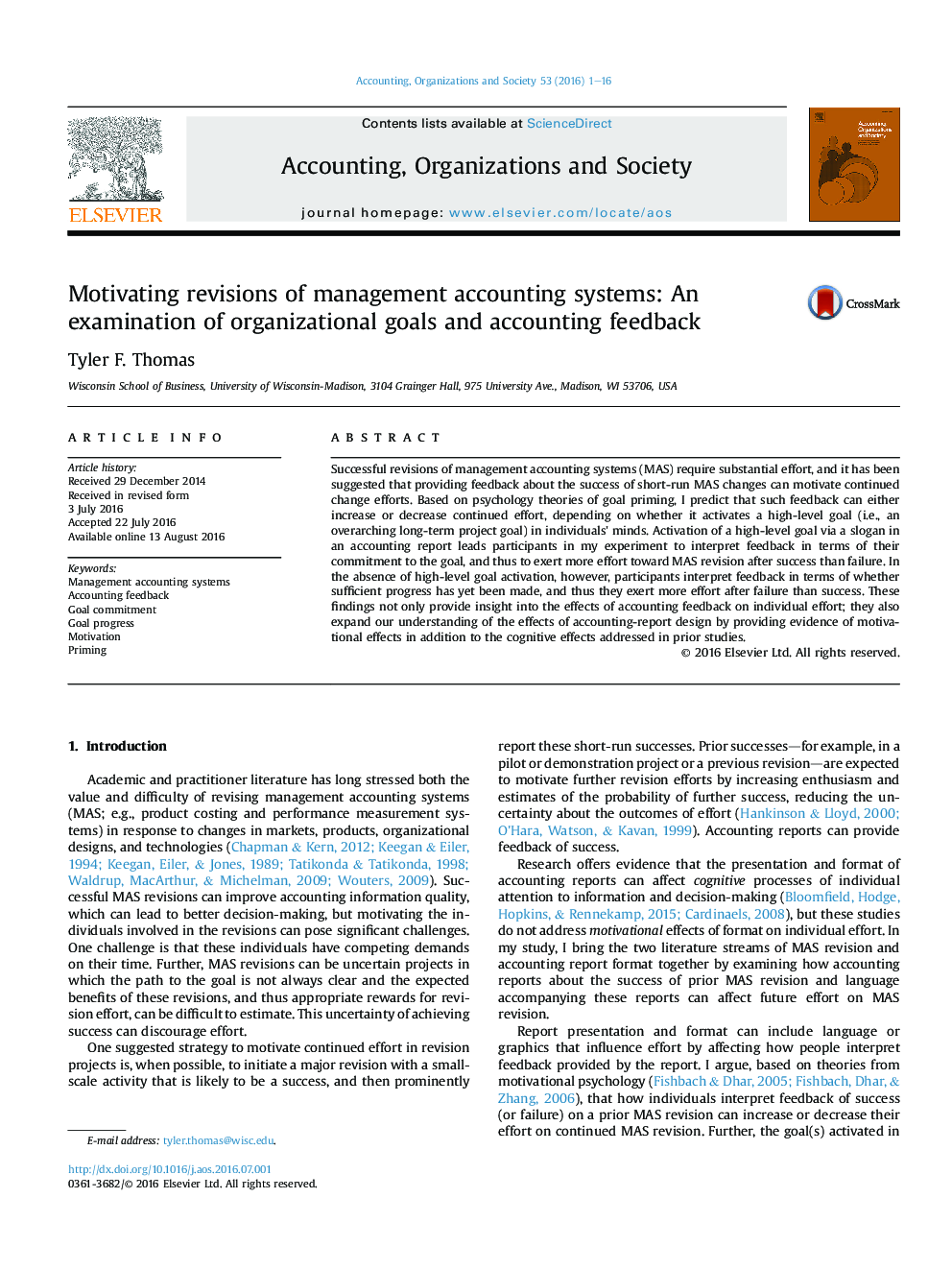| کد مقاله | کد نشریه | سال انتشار | مقاله انگلیسی | نسخه تمام متن |
|---|---|---|---|---|
| 878490 | 1471245 | 2016 | 16 صفحه PDF | دانلود رایگان |
Successful revisions of management accounting systems (MAS) require substantial effort, and it has been suggested that providing feedback about the success of short-run MAS changes can motivate continued change efforts. Based on psychology theories of goal priming, I predict that such feedback can either increase or decrease continued effort, depending on whether it activates a high-level goal (i.e., an overarching long-term project goal) in individuals' minds. Activation of a high-level goal via a slogan in an accounting report leads participants in my experiment to interpret feedback in terms of their commitment to the goal, and thus to exert more effort toward MAS revision after success than failure. In the absence of high-level goal activation, however, participants interpret feedback in terms of whether sufficient progress has yet been made, and thus they exert more effort after failure than success. These findings not only provide insight into the effects of accounting feedback on individual effort; they also expand our understanding of the effects of accounting-report design by providing evidence of motivational effects in addition to the cognitive effects addressed in prior studies.
Journal: Accounting, Organizations and Society - Volume 53, August 2016, Pages 1–16
